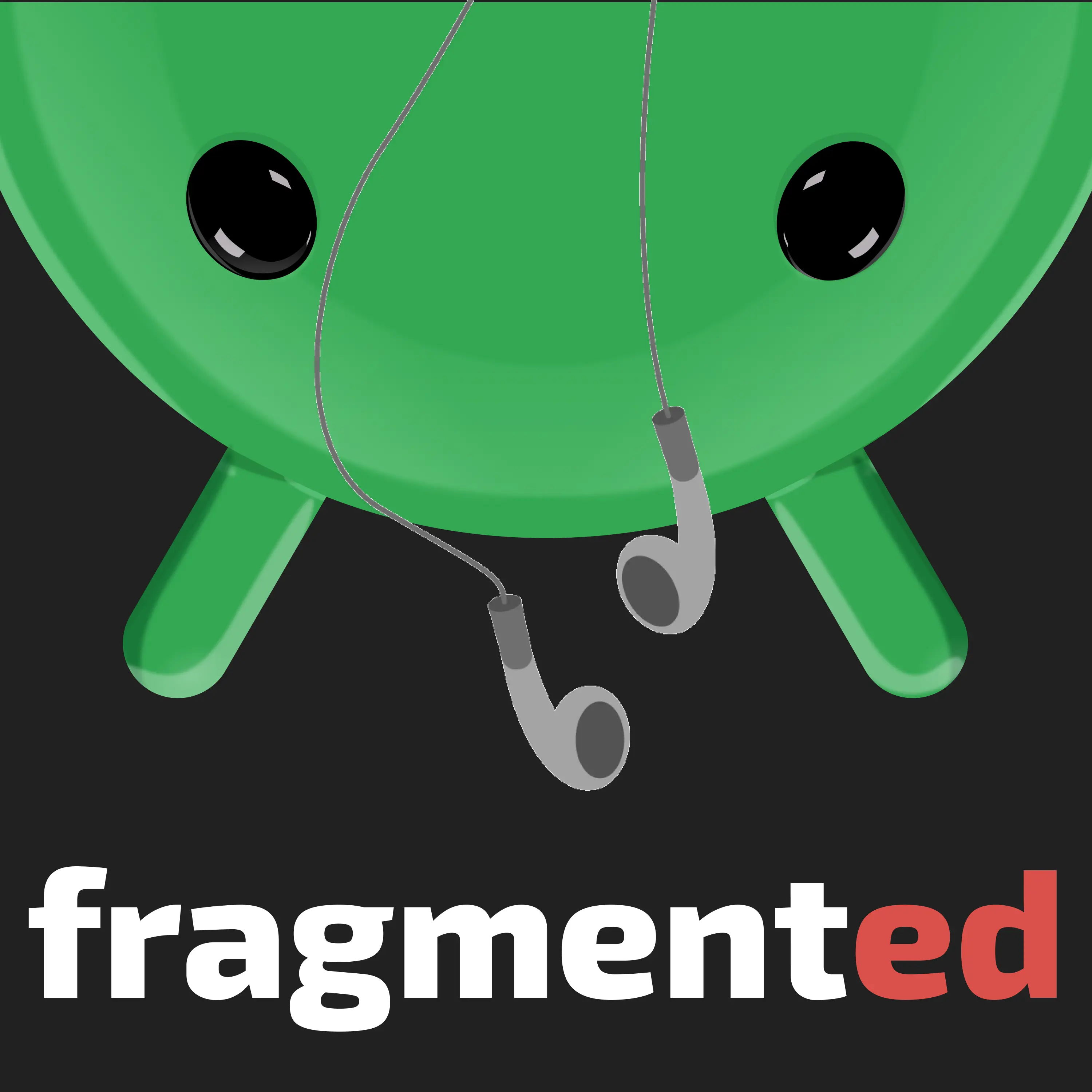We capture what's top of mind for Android developers.
Kaushik & Donn are your hosts and speak to leading experts, learning how they navigate the landscape of Android development.

We capture what's top of mind for Android developers.
Kaushik & Donn are your hosts and speak to leading experts, learning how they navigate the landscape of Android development.
Join us as we talk with Vinay Gaba, Android GDE and leading voice in Android development, about the future of the field. Vinay shares insights from interviews with top Android devs on their three-year predictions, and offers his own perspective. We cover AI’s impact, evolving development roles, and crucial future skills.
You can find the full shownotes over at fragmentedpodcast.com.
In this episode, we dive into the power of rapid prototyping for Android developers using Kotlin. We explore how this crucial skill can impress stakeholders, accelerate your workflow, and help you stay ahead in today’s fast-paced tech landscape. We’ll cover use cases across scripting, web development (with Ktor & HTMX), mobile apps (Jetpack Compose), and even touch upon how AI is changing the game!
You can find the full shownotes over at fragmentedpodcast.com.
In this episode, we dive into the programming paradigm — Data Oriented Programming (DOP) and why making data the star can simplify your code. Learn how well-modeled data reduces defensive logic, prevents invalid states, and keeps your apps stable. We’ll also contrast DOP with Object Oriented Programming (OOP) and Functional Programming (FP), sharing practical examples, tips, and resource links to deepen your understanding.
In this episode, discover how Dan Rusu’s pods4k Immutable Arrays library can deliver 2–8× speed boosts and 5× lower memory usage in Kotlin/Android apps. We first revisit the fundamentals of autoboxing/unboxing and immutability to understand their impact on performance. Then we hear from Dan himself on his library, motiviations for building it, how the benchmarks were calculated and much much more. Our grand finale episode for 2024. Hope you enjoy it!
Full Shownotes at https://fragmentedpodcast.com/episodes/254.
Kaushik looks at a new logging library from Square called logcat. He starts by seeing how the popular Timber library does it along with the benefits. He then interviews Pierre-Yves Ricau (Piwai) of Square, the creator of logcat, to explore its origins and advantages.
You can find the full shownotes over at fragmentedpodcast.com.
In this episode of Fragmented, Kaushik dives into the importance of creating your own starter template to streamline app development and minimize decision fatigue. He shares insights from his own starter template - Playground Android.
Looking to the future, JetBrains has an exciting tool called Amper that might make all of this much easier. Kaushik chats with JetBrains’ Márton Braun about Amper, an exciting new tool that could revolutionize Kotlin & Android project setups.
Tune in to learn how to go from idea to code with less friction!
You can find the full shownotes over at fragmentedpodcast.com.
In this episode, Kaushik explores the evolution of dependency injection (DI) in Android development. Dagger has been the de-facto solution for DI in Android but there might be a new king in DI-town. He also chats with friend of the show and dependency injection expert Ralf Wondratschek for a final gut check.
Listen to find out more.
We’re back from the hiatus with our SemiQuicentennial episode! With the momentous 250 comes some big announcements and a shift in the way we do things.
Listen to find out the details!
In this episode of our podcast, we explore the diverse landscape of Java versions within the Android ecosystem. Our guest is Michael Bailey, a seasoned Java expert who has been a frequent presence on our show since the early days of our podcast. We kick off with a solid foundation, discussing the differences between JDK and JRE, as well as the distinctions between the available Java JDKs. We also guide listeners through Android Studio settings, exploring how to select a suitable JDK, its utilization, and how it relates to JAVA_VERSION on one’s home path/terminal.
As we dig deeper, we start to unpack some of the crucial Android app settings. From compileOptions to sourceCompatibility/targetCompatibility, we shed light on why these versions are important. We also demystify the compileSdk vs minSdk vs targetSdk, and how they interconnect. Drawing from Kaushiks’s recent experience in building a new app, we provide real-life examples that can better clarify these topics for our listeners.
We conclude the episode by providing some valuable resources for further understanding and exploration. This episode is designed to be a comprehensive guide to understanding and navigating the intricacies of Java versions in Android development.